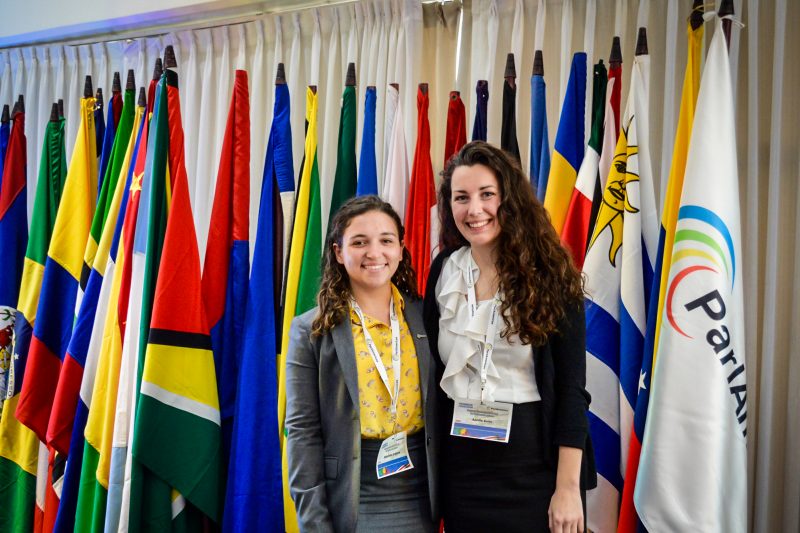Gabriella Capone JD ‘19 and Aprille Knox M.A. ’17
This spring break, members from Yale Law School’s Governance Innovation Clinic, directed by Professor Beth Noveck, traveled to San José, Costa Rica to participate in a conference hosted by the Open Parliament Network of ParlAmericas. Students Aprille Knox (Jackson ‘17) and Gabriella Capone (JD ‘19), collaborated to design and facilitate an interactive workshop session to explore how citizen engagement mechanisms can better support legislative processes.
The conference, hosted by the Legislative Assembly of Costa Rica, brought together parliamentarians, civil society organizations, and legislative experts from across the western hemisphere to discuss pathways for strengthening the ties between citizens and legislatures.
Yale’s clinic team was invited to facilitate one of three workshop sessions, during which feedback was collected from approximately 70 parliamentarians and civil society organizations on opportunities and challenges for citizen participation in the legislative process. While getting citizen buy-in is a key concern when designing new engagement models, understanding the perspective of the legislative stakeholders is equally essential, though it is often neglected. Thus, the session invited participants to reflect on their home legislative systems, and to exchange experiences and insights with one another.
Attendees were particularly interested in exploring opportunities to leverage social media and information communication technologies (ICT) for citizen engagement. However, lessons on how best to incorporate technology into citizen engagement processes are not widespread, and there are concerns that online mechanisms may alienate segments of the population (particularly in resource-poor areas). Respondents also emphasized the importance of engaging citizens early in the lawmaking process to both build legitimacy, as well as to take advantage of citizen knowledge and expertise. A key concern, however, revolved around civic education – fearing that many citizens are not adequately enough informed of both the legislative process and national priorities to provide substantive contribution to late-stage lawmaking.
As a student at Jackson, I have been particularly interested in exploring methods for leveraging citizen participation for the purpose of improving governance and development outcomes. The Open Governance Clinic has provided me with an incredible opportunity to engage both academically and professionally in this space – through coursework on inclusive governance practices coupled with real-world consultation. By providing students with opportunities to work outside the classroom, the course allows us to put theoretical knowledge to practice. My participation in the ParlAmericas conference linked me to legislators, civil society representatives, and other thought leaders in open government, expanding my professional network, while simultaneously bolstering my knowledge of best practices for citizen engagement.
